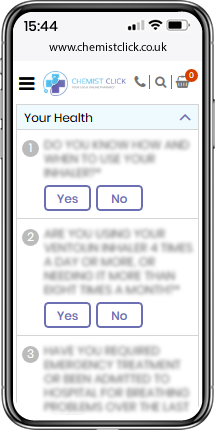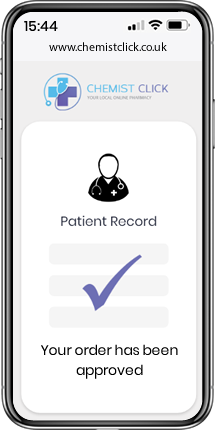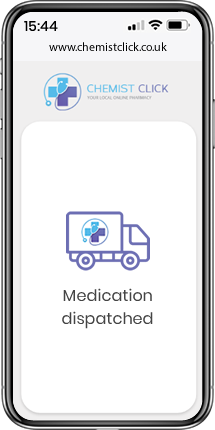Asthma Treatment
Asthma is a common long-term condition that causes breathing difficulties. It affects people of all age groups and usually starts in childhood, however, it is also possible to develop asthma as an adult without any previous history of asthma.
ASTHMA TREATMENT
What is Asthma?
Asthma is a common long-term condition that causes breathing difficulties. It affects people of all age groups and usually starts in childhood, however, it is also possible to develop asthma as an adult without any previous history of asthma. People who have asthma are known as asthmatics
How does asthma affect breathing?
When an asthmatic is subjected to a trigger (something that sets off breathing difficulties such as exercise, pollen, dust etc), it causes the airways to react in three different ways:
- The lining of the airways become inflamed and begin to swell
- Swollen tissue produce a thick mucus/phlegm, which build up in the airways
- The muscles around the airways squeeze tightly causing narrowing of the airways
These three processes combine to reduce the size of the airway, making it difficult to breath, causing symptoms such as wheezing, coughing and a feeling of tightness within the chest.
What are the symptoms of asthma?
- Wheezing (whistling sound coming from the chest)
- Coughing
- Breathlessness
- Tightness in the chest
There are many things that can cause such symptoms, however they are likely to be asthma if they happen in response to a trigger (such as exercise, exposure to dust or smoke etc.), if they are worse at night and early in the morning and if symptoms happen quite alot and come back regularly.
What causes asthma?
It is unclear what the cause of asthma is and why some people have asthma whilst others don't, but it is thought that it is due to a combination of environmental and genetic factors.
What triggers asthma to get worse?
- Exercise
- Infections affecting the respiratory system (such as chest infections, colds, flu)
- Medication (such as ibuprofen and aspirin)
- Emotions (such as stress or anxiety)
- Weather conditions - cold air, wind, heat, humidity
- Air pollution such as fumes or smoke
- Allergies such as pets, foods, dust
How is asthma diagnosed?
Asthma can be diagnosed by asessing symptoms, when and how often they happen, what triggers them, if you have any other conditions such as eczema or allergies or if you have a family history of asthma.
Simple tests involving breathing into instruments (spirometers or peak flow meters) to asses how well your lungs are working may also be performed to confirm diagnosis. Sometimes you may be asked to take home a small device known as a peak flow meter and record your results on an asthma diary. This helps doctors to confirm diagnosis.
Is asthma curable?
Whilst there is no cure for asthma, there are ways to treat and control asthma and prevent it from affecting your daily life.
How is asthma treated?
Reliever inhalers (blue inhalers)
These inhalers are given to all asthmatics. They are used when symptoms start to affect you and you can feel your chest getting tight or experience difficulty in breathing. They work by relaxing the muscles around the airways, so that your airways expand making breathing easier. The usual dose is 1-2 puffs when required, which should provide relief after a few minutes.
Preventer inhalers (brown inhalers)
These inhalers are to be used every day and contain a steroid which helps to manage and control the inflammation and swelling of your airways. Continued use of this inhaler decreases the airways sensitivity to triggers, helping to keep asthma under control.
Combination inhalers
These inhalers are usually prescribed to those whose asthma is not well managed. They usually contain two ingredients:
-
A long acting reliever (to relieve persistent symptoms of breathlessness, wheeze and a tight chest)
- A steroid to manage and control inflammation of the airways on a long term
Tablets
Tablets may be needed if your asthma is very severe uncontrolled by inhalers alone.
How can I prevent asthma attacks?
An asthma attack is when your symptoms of asthma suddenly worsten. The muscles around your airways tighten, the lining of the airways become swollen and more mucus is produced. This makes it hard to breathe.
The best way to avoid asthma attacks are:
- Use your asthma medication as prescribed
- Complete a written asthma action plan with your doctor, pharmacist or nurse and stick to it
- Have regular reviews of your asthma with your doctor, pharmacist or nurse
- Check that you are using your inhaler correctly
- Where possible, avoid things that trigger your asthma
- Don't smoke and avoid second hand exposure
- Maintain a healthy weight
- Make sure you are vaccinated against the flu
- Use the asthma risk checker to find out if you are at risk of an asthma attack and see your doctor if the score is high
What are the signs of an asthma attack?
Signs of an asthma attack include the following:
- You are needing to use your blue inhaler frequently
- Your chest is feeling very tight
- You are coughing and wheezing more than normal
- You cannot breathe normally
- You are finding it hard to talk
- Symptoms are getting progressively worse
What should I do if I am having an asthma attack?
If you are having an asthma attack, you should:
- Sit up straight. Do not lie down and try not to panic
- Take one puff of your blue inhaler every 20-30 seconds until you feel better (You can take up to 10 puffs in this situation)
- If you do not feel better, call 999
- Repeat step 2 if the ambulance have not arrived within 15 minutes



